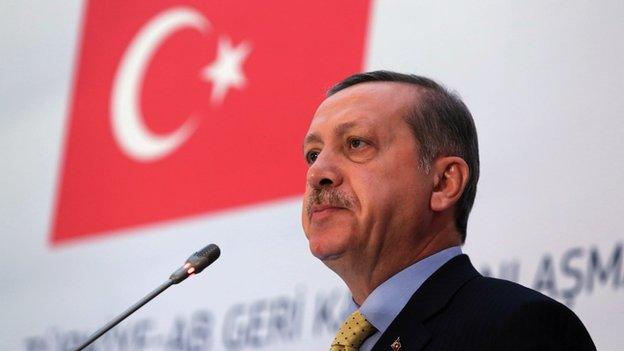Recep Tayyip Erdogan to run for Turkey presidency
- Published
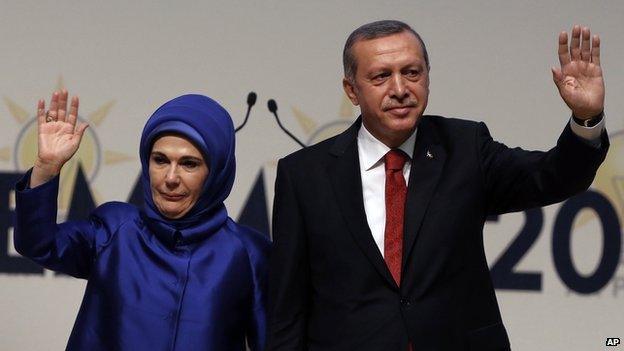
Mr Erdogan remains popular with large sections of Turkish society
Prime Minister Recep Tayyip Erdogan will run for Turkish president in the first direct election in August, his governing AK Party has confirmed.
Mr Erdogan has been PM since 2003 but is barred from seeking a new term.
In the midst of corruption allegations, critics say he has become more authoritarian, but Mr Erdogan says political foes are trying to oust him.
Mr Erdogan wants to give new powers to the president, which has been a largely ceremonial role.
In the past, the incumbent has been chosen by parliament.
But, for the first time, Turks will vote directly for their president in a two-round election in August.
In April, incumbent President Abdullah Gul ruled out swapping roles with his ally, Mr Erdogan, when his presidential term ends.
The AKP has won six consecutive elections, at national and local level, maintaining a solid base of support among the working class.
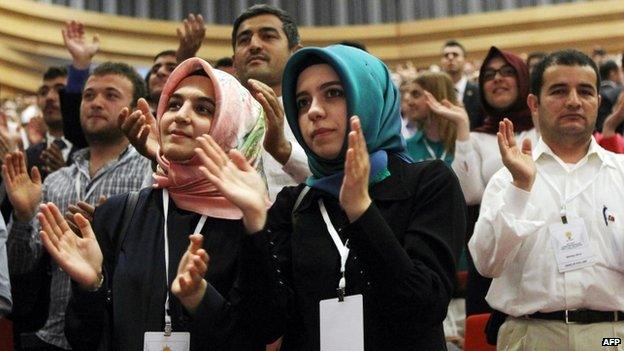
PM Erdogan announced his candidacy before members of Turkey's ruling Justice and Development Party
Tuesday's announcement was greeted with loud applause by party members at a meeting in the capital, Ankara.
"The candidate for the 12th president is our prime minister, head of our party and Istanbul lawmaker Recep Tayyip Erdogan," Mehmet Ali Sahin, deputy AKP leader, announced.

Profile: Recep Tayyip Erdogan
Born in 1954 in the city of Rize on Turkey's Black Sea coast
Sold lemonade and sesame buns on the streets of Istanbul to earn extra cash as a teenager
Attended an Islamic school before obtaining a degree in management from Istanbul's Marmara University
A one-time semi-professional football player
Served as mayor of Istanbul 1994-1998
Jailed for four months in 1998 on charges of inciting religious hatred
Led his AK Party to a landslide election victory in 2002
Ran for parliament and was named prime minister in 2003
Won second term in 2007 and a third term in 2011

Mr Erdogan's opponents accuse him of losing touch with ordinary people after more than a decade in power.
A wave of opponents rose up in May 2013 against the government's plans to convert Gezi Park in Istanbul into a replica military barracks. The prime minister called the demonstrators "capulcu"(riff-raff) - and ordered the police to retake the park.
Last December, prosecutors and police officers organised dawn raids against more than 50 businessmen, including the sons of three cabinet ministers - all allies of the prime minister.
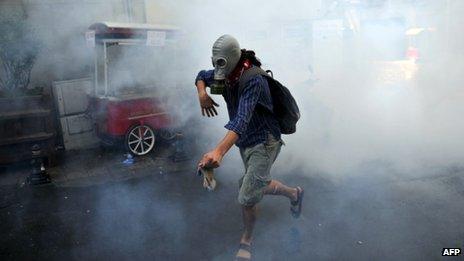
The police used tear gas to drive protesters from Gezi Park
Mr Erdogan said the park protests and the raids were each orchestrated from abroad - a reference to the Gulen movement, named after its leader, a 72-year-old Islamic scholar, Fethullah Gulen, who lives in self-imposed exile in the US.
Mr Gulen's Hizmet movement was unhappy with the way Mr Erdogan dealt with the Gezi Park protesters.
In April, Turkey said it would launch extradition proceedings against Mr Gulen.
He has many supporters in the police and judiciary, and has denounced moves to shut down the investigation into corruption allegations levelled against several of the prime minister's allies.

The Hizmet movement
Hizmet ("service") is the Turkish name of what is commonly known as the Gulen movement
The movement is inspired by the teachings of Islamic preacher Fethullah Gulen, who lives in exile in the US
There is no formal structure but its followers number in the millions

- Published22 March 2014

- Published18 December 2013
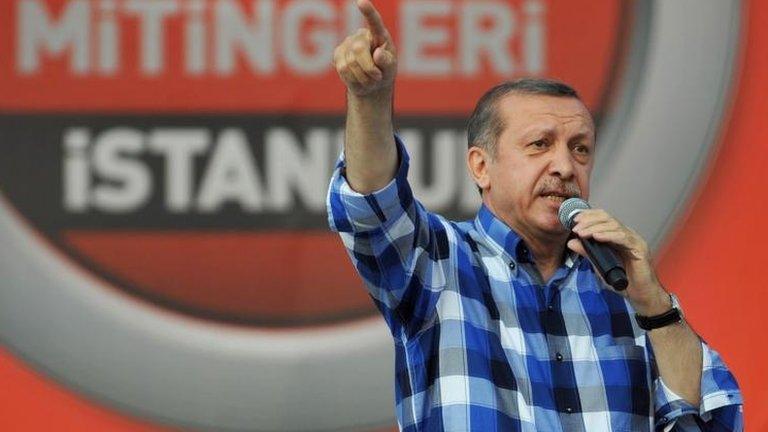
- Published27 December 2013
